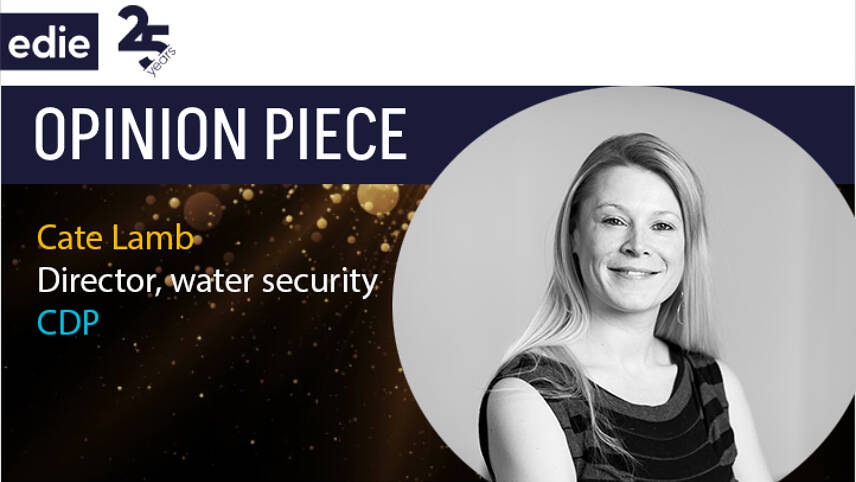Register for free and continue reading
Join our growing army of changemakers and get unlimited access to our premium content

The UN 2023 Water Conference from two weeks ago was a long time coming. It had been 46 years to be precise since world leaders gathered in Mar del Plata to discuss concerns about water. One of the central observations from the 1977 conference was that “the conservation and rational use of water resources is an unavoidable responsibility.”
Fast forward half a century and the weight of that responsibility could not be felt more acutely. The world has not valued freshwater in the intervening years, and to the contrary water stress is now experienced by billions of people across all continents.
The 2023 conference in New York should represent a launch pad for stronger collective action on the water crisis. However, only 12 heads of state turned up in person, favouring instead to send their environment ministers. There was also no negotiated agreement, no horse-trading between member states, no gavel coming down to signal the moment a historic deal was signed.
In its place, the main outcome was the Water Action Agenda – a set of voluntary commitments made by governments, businesses, investors, and more, to value water. The final total of commitments reached 600 by the end of the conference, an important first step that showed the strength of feeling across the global economy. But these commitments need to be supported by a strong regulatory environment that only governments can create.
There were plenty of examples during the conference of innovation and leadership from the private sector. Companies reporting to CDP recently identified huge unexplored commercial opportunities when taking water action. The financial benefits are conservatively estimated to be over $430bn but could be as high as $1trn if all businesses acted the same way. Many financial institutions now recognise how their investments play a crucial role in either solving or exacerbating the water crisis. 35 investors with over 3 trillion in assets told governments as much by signing CDP’s open letter before the conference calling for much stronger policy responses.
In the absence of effective regulation, it falls to civil society to support the transition to a water-secure future. CDP has long been aware that pushing companies, investors and cities to report on their water risks, impacts and dependencies is vital. Water disclosure via CDP has grown 85% in the last 5 years and we only expect this to grow further and faster as the need to manage water-related risks becomes more urgent. And, in fact, an appeal to stronger water data was one of the key recommendations from the 1977 conference. That task has only become more complex and more urgent in the proceeding decades.
One key moment from the conference was the publication of the Global Commission on the Economics of Water, the first report into how we can re-orient the economy to fix the water crisis. Among its ‘seven-point call for collective action’ was a plea to stop under-pricing water. For too long the world has operated under a system where the costs associated with extracting, transporting, using, and cleaning water are not built into the price companies pay. And furthermore, the externalities associated with scarcity, pollution, ecosystem destruction, and public health erosion are ignored. We need to make water visible on public and private balance sheets. This way we can account for freshwater’s multiple benefits and ensure new investment flows into valuing it appropriately.
Following on from this, and another recommendation from the Global Commission, we need to mandate water disclosure to accelerate action and ensure a level playing field across the economy. It was encouraging to see the European Commission and the Government of Singapore intervene to call for mandatory water disclosure during the conference.
Water is a global commons and its depletion has significant knock-on effects for nature, climate, food, energy, and our economic health. Many member states are starting to realise this fact. What’s needed now are strategies which reflect this interdependence.
The end of the conference ought to be the start of a long overdue process to value water as a precious and fragile resource. We need a heightened sense of urgency at the international level and new forums to hold member states to account on their water commitments. Three days were not enough to redress nearly five decades of neglect at the highest level. It was down to Henk Ovink, the conference’s sherpa and Dutch special envoy on water, to tell attendees “I need you to not think of this conference as the end of a process, but merely the start of a global effort to stem the water crisis. I need you on Monday”.



Please login or Register to leave a comment.